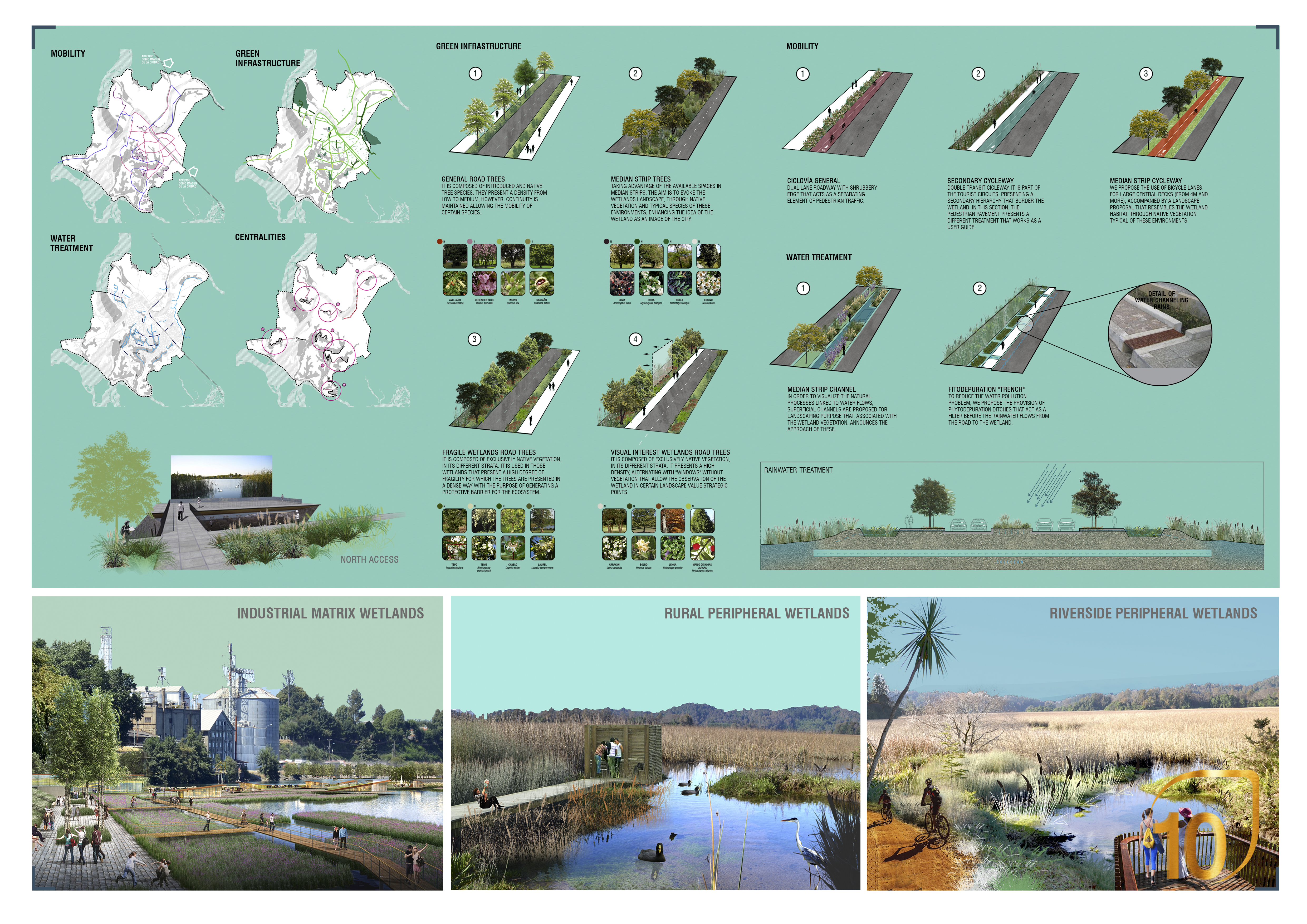
Planning of the urban and peri-urban wetlands system of Valdivia as an urban landscape shaper
Final degree project
Universidad Central de Chile
Throughout history, the city of Valdivia has been exposed innumerable times to natural disturbances that have resulted in the modification of the surrounding landscape, including the largest earthquake known on the planet, allowing the emergence of new ecological structures, such as the Carlos Anwandter Nature Sanctuary, and what we know today as “Valdivia urban wetlands".
The vulnerability and the transformation capacity of the territory in short periods, given mainly by the instability of its soils and the presence of complex networks of subterranean and superficial waters, have determined the way of livigng of the Valdivian citizen, consolidating the “water landscape", composed of rivers and wetlands, as an indissoluble element in the collective imagination, aware and also unconscious within the population.
In this context, understanding that the wetland system is fully inserted in the city, it is possible to identify the existence of a permanent conflict between the wetlands urban and the natural matrix, the latter being threatened by the continuous progress of the urbanization.
From this, the proposal seeks to reinforce the recognition of urban wetlands as "intrinsic elements of the identity and structure of the city", consolidating a city-image closely linked to its natural heritage, based on three major strategies:
Strategy 1: Citizen proposal: city-image / mobility / tourism / public space / environmental education
Strategy 2: Structural-functional proposal: patch-matrix relationship, system connectivity.
Strategy 3: Normative proposal: planification instruments modification / public-private partnership
